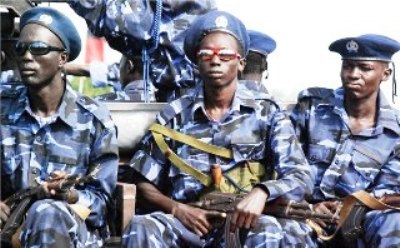Rights group accuses S. Sudan of crackdown on protesters
July 18, 2019 (JUBA) – South Sudanese authorities have in recent months escalated their crackdown on peaceful dissent by conducting a cross-border campaign of harassment, intimidation and attacks against critics to prevent a series of global protests on the country’s leadership from taking place, a rights group said.

“It is a shame that the authorities fail to appreciate the pivotal role that respecting, protecting and promoting human rights plays in the country’s growth and development,” said Joan Nyanyuki, Amnesty International’s Director for East Africa, the Horn and the Great Lakes.
“The Government of South Sudan must publicly denounce the escalating harassment, intimidation and attacks on people simply for exercising their rights to freedom of expression, peaceful assembly and association and stop attacks on critics both at home and abroad,” she added.
According to the rights group, just prior to the 16 May protests, senior members of South Sudan’s government made thinly veiled threats against organizers and protestors.
On 7 May, is said, South Sudan’s information minister, Michael Makuei Lueth, threatened protesters with deadly consequences if they took part in the planned protests.
This, Amnesty International said, was followed a door-to-door search of people’s homes day and night, targeting suspected members and supporters of the RCM that was carried out by officers from the National Security Services (NSS) and the army.
The authorities also deployed a large number of troops in Juba and closed public spaces, the group added.
Meanwhile, in neighbouring Kenya, RCM members were reportedly threatened with arrest and deportation back to Juba, from where they would be forcibly disappeared.
This intimidation and harassment reportedly continued after the aborted 16 May protests. On July 9, members and supporters of the movement reportedly staged a peaceful protest in front of the South Sudan embassy in Nairobi.
They were dispersed by Kenyan police despite complying with the legal requirement to notify the police about the planned protest. Three of them were arrested and charged for unlawful assembly. They were released on bail the next day and told Amnesty International they had been beaten by police officers.
“The South Sudanese people must be able to enjoy their human rights, including the rights to freedom of expression, peaceful assembly and association. People should be free to criticize their government and its policies without fear of reprisals,” said Nyanyuki.
(ST)
